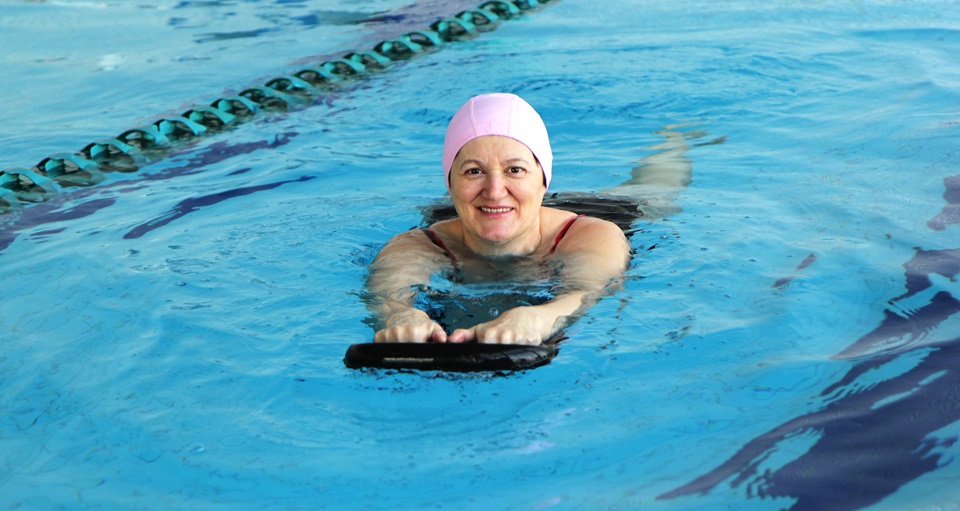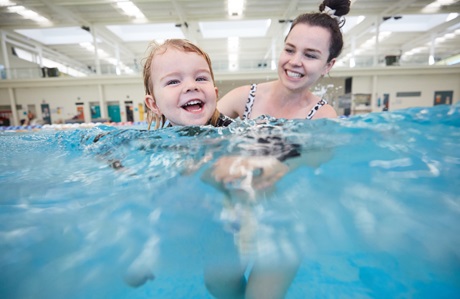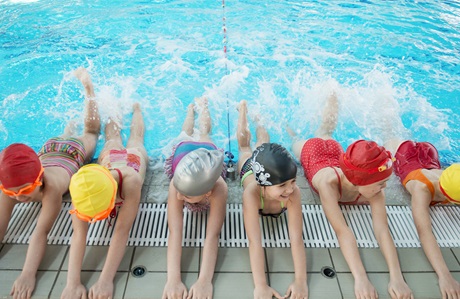Tips for getting back into exercise after a break
Reading time: 12 minutes

If you’re feeling guilty about having taken a break from exercise, you’re not alone. Life often gets in the way. But the only way to stop those feelings and to improve your health and fitness is to get back into it!
Before we provide you with our top tips for how to do that, it’s important to understand:
- what happens to your body after you take a break from exercise, and
- what to expect when you return to exercise after a long break.
What happens to the body after a break from regular exercise?
Once you stop exercising for any length of time, you lose the strength and fitness levels that you had. This can start happening even after a week of not exercising, and escalates the longer break you take.
How quickly you lose your strength and fitness levels depends on a variety of factors, including your age and how intensely you were exercising before you took a break. Your cardiovascular fitness will decrease at a faster rate than your muscle mass.
Not exercising causes physiological changes in your body. Your heart doesn’t pump blood as efficiently, reducing your aerobic capacity and muscle strength. The ability of your body to use carbohydrates for energy also decreases.
You may experience weight gain as your metabolism slows down. Your blood pressure may also increase. Neither of these consequences are good for your long-term health.
What to expect when you return to exercise
Don’t expect to return to exercising at the same intensity level initially. In general, the longer your exercise break has been, the longer it will take you to get back to your previous strength and fitness level.
However, one thing in your favour is muscle memory. You can regain lost muscle quicker if you return to doing exercises you were doing before your layoff.
Here’s our tips for how to start exercising after a long break.
Tip 1 – Start slow and be patient!
This will help you to:
- Minimize injuries that you might otherwise get by over exercising too early.
Give your body time to readjust back to exercising again. Make sure that you stretch and warm up properly at the beginning of each session and that you cool down appropriately as well.
- Stay motivated.
If exercising becomes a chore or too hard, it will be more tempting for you to voluntarily take another break.
It’s always worthwhile to build in recovery days into your exercise program, especially when you first start back after a break. Listen to your body. You can gradually increase the amount and the intensity of the sessions you do each week as your fitness and strength levels improve.
Tip 2 – Set yourself SMART goals
SMART is a synonym for:
- Specific – your exercise goal that you want to achieve needs to be specific. For example, losing X kilograms or swimming Y kilometers.
- Measurable – your goal should be measurable. For example, a weight, time or exercise routine that can be measured or counted.
- Achievable – your goal should be realistic enough to be achievable. By all means make it challenging to achieve, but don’t set an unrealistic goal. If you do, sooner or later you’ll become demotivated.
- Relevant – set exercise goals that are relevant for your interests and do exercise routines that you enjoy. Doing that will help to keep you motivated and you’ll then be more likely to stick to your routine.
- Timetabled – any goal that you have should have a timeframe for when you want to achieve it. For example, losing X kilograms by a certain date.
Tip 3 – Join a class or get a training partner
This will help to keep you accountable. It can also help to keep you motivated to keep exercising.
Tip 4 – Incorporate variety into your exercise routine
This will help to avoid you becoming bored or demotivated. For example, you could alternate between gym and swimming classes. You should also make sure you do both cardiovascular fitness as well as strength training and flexibility exercises.
Tip 5 – Reward yourself
Life is a balance. It’s important to reward yourself appropriately when you achieve your exercise goals.
How we can help
Our swim, gym and indoor sports facilities at HBF Arena in Joondalup can help you to get back into shape, no matter how long an exercise break you’ve taken. We have programs to cater for all fitness levels and abilities.
Contact us today to get back into your exercise routine!




